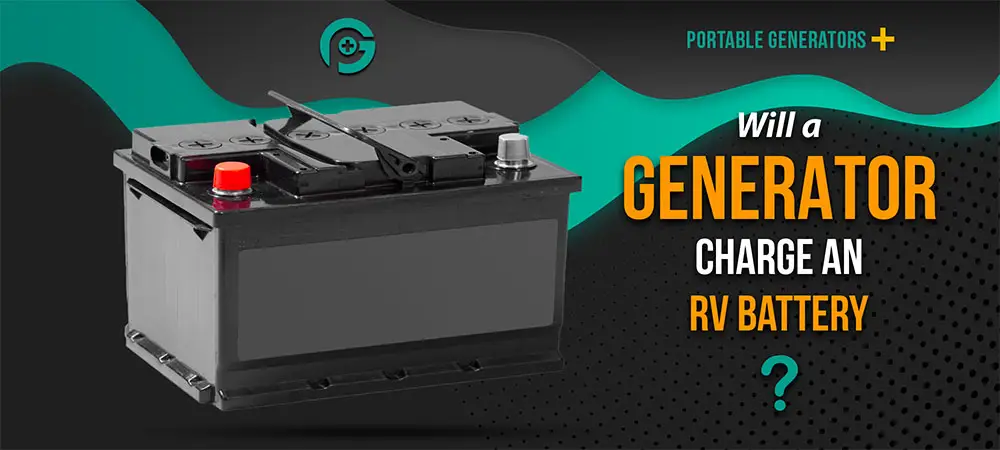Will Generator Charge RV Battery? - Quick Answer...
The Answer is a Definite Yes! In fact, many RV owners rely on generators to top up their batteries while journeying or camping off the grid. The article below will take a deep dive into this very question!
Introduction
Question: Will Generator Charge RV Battery?
If you are an avid RV enthusiast, you may have wondered whether a generator can charge the battery of your RV. The good news is that, yes, a generator can indeed charge an RV battery.
In fact, it is a popular method among RV owners to maintain and replenish the power in their batteries while on the road or camping in remote areas.
In this article, we will delve into the basics of generators and RV batteries, explore the options for charging RV batteries with a generator, discuss the benefits, factors to consider, alternative methods, and best practices for successful charging. So, let’s dive in!
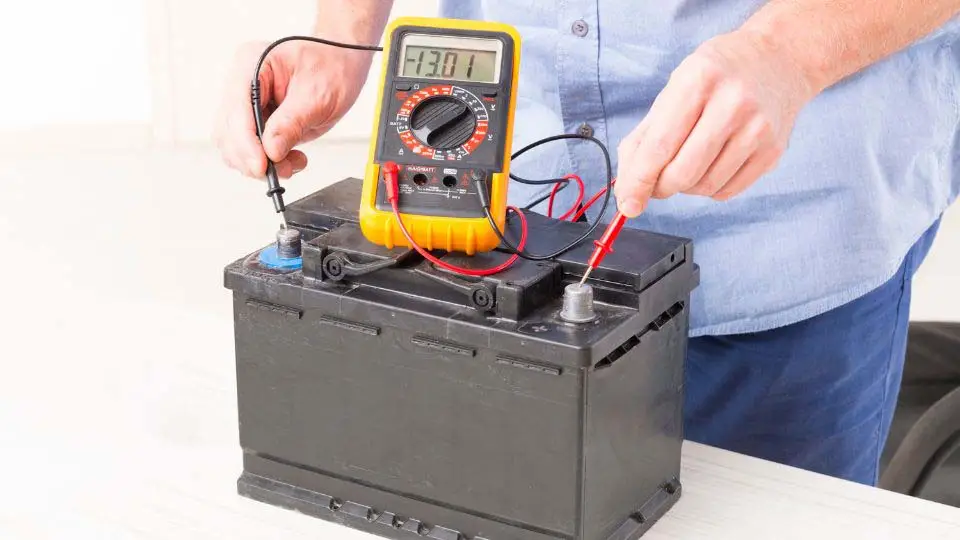
Please Note: We know the question “Will Generator Charge RV Battery?” is poorly written, but it is the way the question is most often searched for. To appear as an answer in the search engine results, we have to quote the question as it is asked. Cheers.
Can a Generator Charge an RV Battery?
Generator Basics
Before we dive into how generators can charge RV batteries, let’s first understand the basics of generators. A generator is a device that converts mechanical energy into electrical energy.
It consists of an engine that runs on fuel such as gasoline, diesel, or propane, which powers an alternator to produce electricity. Generators come in different types, sizes, and capacities to cater to various power requirements.
Understanding RV Batteries
RV batteries are an essential component of your RV’s electrical system. They provide power to operate lights, appliances, and other electrical devices in your RV, both when you are connected to shore power and when you are off-grid.
RV batteries are designed to store and discharge electrical energy efficiently. They come in different types, such as lead-acid batteries, AGM (Absorbent Glass Mat) batteries, and lithium-ion batteries, each with its own characteristics and performance.
Power Requirements of RV Batteries
To effectively charge an RV battery, it is crucial to understand its power requirements. RV batteries are rated in ampere-hours (Ah) or reserve capacity (RC), indicating the amount of charge they can store and provide.
The power requirements of RV batteries vary depending on your specific needs and the electrical devices you intend to power. Therefore, it is essential to calculate your power needs accurately to determine the type and capacity of the generator you require.
Charging Options for RV Batteries
When it comes to charging RV batteries, there are different options available. These include shore power, solar power, power inverters with converter/chargers, battery chargers, and, of course, generators.
While each method has its own advantages and limitations, using a generator to charge your RV battery offers several benefits, as we will explore in the following section.
Using a Generator to Charge an RV Battery
Now that you have a basic understanding of generators and RV batteries let’s delve into using a generator to charge an RV battery.
This section will discuss the generator type and capacity required, various connection options, potential challenges, and tips for efficient battery charging.
Generator Type and Capacity
Choosing the right type and capacity of a generator is crucial for effectively charging your RV battery. Generators come in different types, including portable generators, inverter generators, and built-in generators.
Portable generators are versatile and provide sufficient power for most RV battery charging needs.
Inverter generators, on the other hand, are more fuel-efficient, quieter, and produce cleaner power, making them an excellent choice if you prioritize these factors. Built-in generators are typically found in larger RVs and motorhomes.
The generator’s capacity, measured in wattage, should be sufficient to meet your RV’s power requirements. Consider the appliances and devices you typically use and their power consumption to determine the generator’s capacity you need.
It is recommended to choose a generator with a capacity slightly higher than your estimated power needs to account for any surge or additional power requirements.
Connection Options
To charge your RV battery using a generator, you need to establish a connection between the two. The most common method is to use an RV shore power cord and an adapter to connect the generator’s output to your RV’s electrical system.
Make sure to refer to your RV’s manual or consult a professional to ensure you are using the correct connections and following the recommended procedures.
Potential Challenges
While using a generator to charge an RV battery offers numerous advantages, it is essential to be aware of potential challenges. One challenge is the noise generated by the generator, especially if you are camping in a quiet and peaceful environment.
Inverter generators are quieter compared to traditional generators, providing a more pleasant experience. Another challenge is the generator’s fuel consumption, which may require frequent refueling, depending on your power needs and the generator’s fuel efficiency.
Tips for Efficient Battery Charging
To make the most of your generator and ensure efficient battery charging, consider the following tips:
- Plan your charging schedule: It is beneficial to have a routine for charging your RV battery to maintain its performance and longevity. Plan regular charging sessions, especially if you frequently use power-hungry appliances or devices.
- Charge during off-peak hours: If you are staying at a campground or RV park with specific quiet hours or limited access to shore power, consider charging your RV battery during off-peak hours to minimize noise disruption and maximize the availability of power.
- Utilize energy-efficient appliances: Opt for energy-efficient appliances and devices in your RV to reduce power consumption and extend the runtime of your battery. LED lights, energy-efficient refrigerators, and low-power-consuming electronics are excellent choices.
- Rotate power usage: To avoid overloading your generator or draining your battery too quickly, rotate the usage of power-hungry devices. For example, if you are running the air conditioner, consider turning off other power-consuming devices temporarily.
- Monitor the battery’s charge level: Keep an eye on your RV battery’s charge level to prevent overcharging or undercharging. Investing in a battery monitor or utilizing your RV’s built-in battery monitoring system can help you monitor the charge level more accurately.
- Consider a smart charger: If you want a more sophisticated charging solution, consider investing in a smart charger. These chargers regulate the charging process, ensuring optimal charging and extending the battery’s lifespan.
By following these tips, you can optimize your generator’s performance and maximize the charging efficiency of your RV battery.
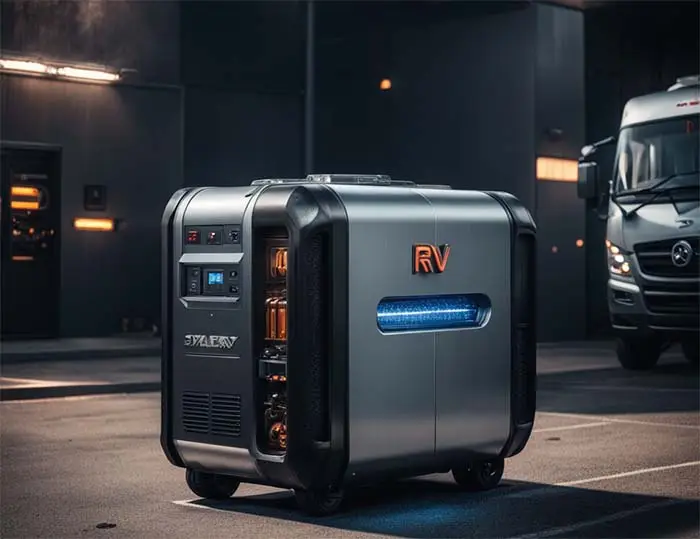
Please Note: We know the question “Will Generator Charge RV Battery?” is poorly written, but it is the way the question is most often searched for. To appear as an answer in the search engine results, we have to quote the question as it is asked. Cheers.
Benefits of Charging RV Batteries with a Generator
Now that we understand how to use a generator to charge an RV battery, let’s explore the benefits this method offers.
Independence from Shore Power
One of the significant advantages of using a generator to charge your RV battery is the independence it provides from shore power. Whether you are camping in remote areas, boondocking, or experiencing a power outage, a generator allows you to have a reliable power source to keep your RV’s electrical system up and running.
Extended Boondocking Opportunities
For RV enthusiasts who enjoy boondocking or camping off-grid, a generator becomes a valuable asset. It allows you to extend your boondocking experiences by replenishing your RV battery’s power whenever needed. With a generator, you can enjoy the solitude of remote campsites without worrying about running out of power.
Emergency Power Backup
In emergencies, such as severe weather conditions or natural disasters, a generator can serve as a reliable backup power source for your RV. It ensures you have the necessary power to operate essential appliances, charge devices, and even keep vital medical equipment running if needed.
The ability to achieve independence from shore power, extend your boondocking opportunities, and have a backup power source are compelling reasons to consider using a generator for charging your RV battery.
Factors to Consider for Successful RV Battery Charging with a Generator
While using a generator to charge an RV battery is a convenient and beneficial method, several factors must be taken into consideration for successful charging. These factors include generator compatibility and ratings, battery type and capacity, charging system efficiency, and safety precautions.
Generator Compatibility and Ratings
To avoid any compatibility issues and ensure efficient charging, it is crucial to match your generator’s specifications with your RV battery’s requirements. Consider the generator’s voltage, wattage, and frequency ratings and compare them to your battery’s voltage and charging specifications. It is recommended to consult your RV’s manufacturer or a professional to ensure compatibility.
Battery Type and Capacity
Different types of batteries have different charging requirements. Lead-acid batteries, for example, may require a different charging profile compared to Lithium-ion batteries. Make sure to refer to your battery manufacturer’s recommendations and follow the appropriate charging procedures to maximize the battery’s performance and longevity.
Additionally, consider the battery’s capacity and power requirements. Some RV owners may have multiple batteries connected in parallel or series, requiring a higher-capacity generator for efficient charging. Understanding your battery’s needs will help you choose the right generator and charging setup.
Charging System Efficiency
Efficiency plays a significant role in battery charging. Ensure that your generator’s charging system is designed to maximize efficiency and prevent power loss. Inverter generators, for example, are known for their higher efficiency and cleaner power output compared to conventional generators.
Investing in a quality charging system and related accessories, such as smart chargers or battery isolators, can also enhance the charging efficiency and overall performance of your battery.
Safety Precautions
Safety should always be a top priority when working with generators and RV batteries. Follow the recommended safety precautions provided by the generator and RV manufacturers.
This may include ensuring proper grounding, using the correct cables and connectors, avoiding overloading the generator, and implementing measures to prevent electrical shocks or other hazards. Familiarize yourself with your RV’s electrical system and the generator’s operating instructions to avoid any safety risks.
By considering these key factors, you can ensure successful and safe charging of your RV battery with a generator.
Generator Maintenance and Service
To keep your generator in peak condition and ensure its reliable performance, regular maintenance, and service are essential. This section will discuss the importance of regular maintenance, checking fuel levels, performing oil changes, and addressing malfunctions.
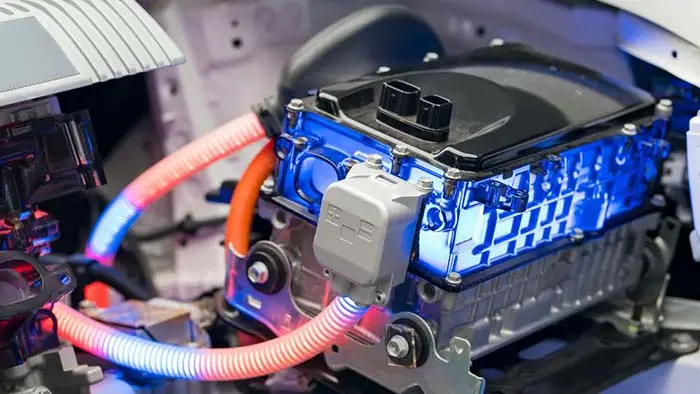
Please Note: We know the question “Will Generator Charge RV Battery?” is poorly written, but it is the way the question is most often searched for. To appear as an answer in the search engine results, we have to quote the question as it is asked. Cheers.
Regular Maintenance
Regular maintenance is vital to keep your generator running smoothly and optimally. Follow the manufacturer’s recommended maintenance schedule, which typically includes tasks such as air filter cleaning/replacement, spark plug inspection/replacement, fuel system inspection, and generator coolant system maintenance.
Regular maintenance not only extends the generator’s lifespan but also helps prevent unexpected breakdowns and costly repairs.
Checking Fuel Levels
Monitoring the fuel levels in your generator is crucial to avoid unexpected power interruptions. Ensure you have sufficient fuel in your generator’s tank before embarking on any trips or extended camping adventures. It is also advisable to keep a spare fuel container with you in case you need to refuel while on the road.
Performing Oil Changes
Just like any other engine, a generator requires regular oil changes to maintain optimal performance. Consult your generator’s manual for recommended oil change intervals and use the appropriate type and grade of oil.
Regular oil changes help lubricate the internal components, prevent excessive heat buildup, and ensure the generator operates efficiently.
Addressing Malfunctions
If you encounter any malfunctions or issues with your generator, it is important to address them promptly. If you have limited knowledge or experience with generator repair, it is advisable to seek professional assistance.
Attempting to fix complex issues without the necessary expertise may lead to further damage or safety hazards.
Remember, maintaining your generator ensures its reliability and performance, offering you peace of mind during your RV adventures.
Alternative Charging Methods for RV Batteries
While generators provide reliable and convenient charging for RV batteries, it is worth exploring alternative charging methods for your battery as well. This section will briefly discuss solar power, power inverters with converter/chargers, battery chargers, and alternator charging while driving.
Solar Power
Harnessing solar power to charge your RV battery is an environmentally friendly and sustainable option. Solar panels collect sunlight and convert it into electricity to charge your battery.
Solar charging systems can be installed on the roof of your RV or used as portable systems for increased flexibility. Solar power is particularly beneficial for RVers who spend extended periods off-grid and prioritize eco-friendliness.
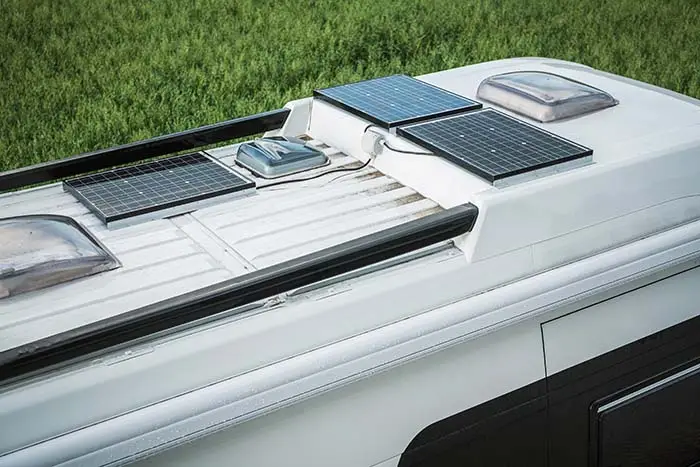
Please Note: We know the question “Will Generator Charge RV Battery?” is poorly written, but it is the way the question is most often searched for. To appear as an answer in the search engine results, we have to quote the question as it is asked. Cheers.
Power Inverter with Converter/Charger
A power inverter with a converter/charger is another alternative method for charging your RV battery. Inverters convert DC (Direct Current) power from your battery into AC (Alternating Current) power, allowing you to operate standard electrical devices in your RV.
A converter/charger simultaneously charges your battery while connected to shore power or a generator, providing a comprehensive power solution.
Battery Chargers
Battery chargers are designed specifically for charging batteries and can be a valuable tool for maintaining and replenishing your RV battery’s power. These chargers provide regulated charging cycles, ensuring efficient and safe charging.
Portable battery chargers are compact and can be easily carried with you on your RV travels.
Alternator Charging while Driving
When you are on the road, your RV’s alternator automatically charges your battery while the engine is running. This charging method is beneficial for topping up your battery’s charge during travel or when you must move your RV frequently.
However, it may not be sufficient for fully charging the battery, especially if you have power-hungry devices or multiple batteries.
By exploring these alternative methods, you can choose the most suitable charging solution for your RV battery based on your specific needs and preferences.

Please Note: We know the question “Will Generator Charge RV Battery?” is poorly written, but it is the way the question is most often searched for. To appear as an answer in the search engine results, we have to quote the question as it is asked. Cheers.
Comparing Generator Charging with Other Methods
To help you make an informed decision about charging your RV battery, it is important to compare generator charging with other methods. Here, we will briefly discuss efficiency, cost-effectiveness, and environmental impact.
Efficiency
When it comes to efficiency, generator charging is a reliable and efficient method for charging RV batteries. Generators can provide a consistent and high level of power output, ensuring a relatively quick and efficient charging process.
However, keep in mind that generator efficiency can vary depending on factors such as the generator type, fuel consumption, and the specific power requirements of your RV.
Solar power, on the other hand, relies on sunlight availability and may not provide consistent charging rates. Power inverters with converter/chargers and battery chargers are generally efficient methods, but their charging speed may be slower compared to generator charging.
Cost-effectiveness
The cost-effectiveness of charging methods depends on various factors, including the initial investment, ongoing expenses, and the expected lifespan of the charging equipment.
Generator charging requires the upfront cost of purchasing a generator, fuel costs, and occasional maintenance expenses. Solar power systems have higher upfront costs but offer long-term savings since sunlight is free and unlimited. Power inverters with converter/chargers and battery chargers have relatively lower upfront costs.
It is important to consider your budget and long-term RV usage plans when evaluating the cost-effectiveness of different charging methods.
Environmental Impact
In terms of environmental impact, generators are known to produce emissions and generate noise. While inverter generators are more fuel-efficient and produce cleaner power output, conventional generators may have a higher environmental impact.
Solar power is a clean and renewable energy source, providing an environmentally friendly charging option. Power inverters with converter/chargers and battery chargers have minimal environmental impact since they rely on existing power sources.
Consider the environmental implications of different charging methods and opt for the most eco-friendly option that aligns with your values.
Best Practices for Charging RV Batteries with a Generator
To ensure optimal battery performance and make the most of your generator charging, here are some best practices to consider:
Determining Power Requirements
Calculate your RV’s power requirements accurately. Take into account the appliances, devices, and systems you plan to power, and consider any surge current or start-up power needs.
Using Energy-efficient Appliances
Invest in energy-efficient appliances, such as LED lights and low-power-consuming electronics. Energy-efficient appliances reduce power consumption, allowing your RV battery to last longer and minimizing the load on your generator.
Optimizing Charge Times
Plan your charging schedule to optimize battery performance. Regular charging sessions, especially during off-peak hours, can help extend battery life and maximize power availability.
Avoiding Overcharging or Undercharging
Monitor your battery’s charge level regularly to avoid overcharging or undercharging. Overcharging can lead to battery damage, while undercharging may result in decreased battery performance. Maintain a balance to ensure optimal charging.
By following these best practices, you can ensure efficient charging, extend your battery’s lifespan, and enhance your overall RV experience.
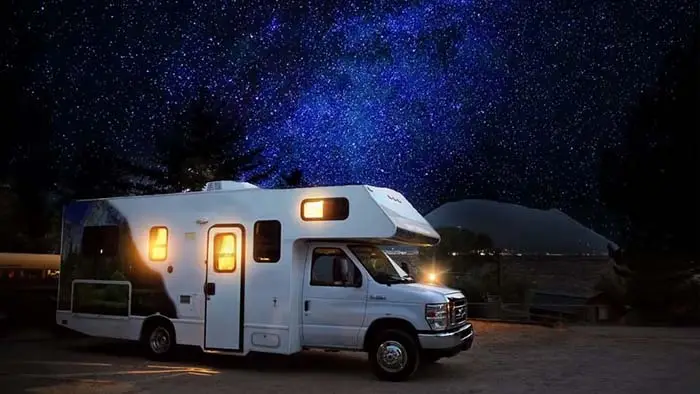
Please Note: We know the question “Will Generator Charge RV Battery?” is poorly written, but it is the way the question is most often searched for. To appear as an answer in the search engine results, we have to quote the question as it is asked. Cheers.
Ensuring Compatibility and Safety
To charge your RV battery with a generator safely and effectively, keep the following considerations in mind:
Matching Generator and Battery Specifications
Ensure your generator’s specifications align with your battery’s voltage, charging requirements, and capacity. Consult your RV’s manufacturer or a professional to ensure compatibility.
Using Proper Cables and Connectors
Use high-quality cables and connectors to establish a secure and reliable connection between your generator and RV. It is essential to use the correct cables and connectors recommended by your RV’s manufacturer or the generator’s manual to prevent any electrical hazards.
Avoiding Overloading or Damaging the Generator
Do not overload your generator by exceeding its capacity with excessive power demands. Overloading can lead to generator damage and reduced charging efficiency. Always refer to your generator’s manual for its specific power limitations.
Implementing Safety Measures
Prioritize safety by familiarizing yourself with your RV’s electrical system and the generator’s operating instructions. Implement safety measures such as proper grounding, keeping flammable materials away from the generator, and avoiding electrical shocks.
Follow the recommended safety guidelines provided by the generator and RV manufacturers. By ensuring compatibility and implementing safety precautions, you can charge your RV battery with a generator safely and effectively.
Conclusion
In conclusion, using a generator to charge an RV battery offers numerous benefits, including independence from shore power, extended boondocking opportunities, and emergency power backup.
When selecting a generator for charging your RV battery, consider the type and capacity of the generator, various connection options, potential challenges, and tips for efficient charging.
Additionally, factors such as generator compatibility, battery type and capacity, charging system efficiency, and safety precautions need to be taken into account.
While generator charging is a reliable method, consider alternative charging methods such as solar power, power inverters with converter/chargers, battery chargers, and alternator charging while driving.
Compare the efficiency, cost-effectiveness, and environmental impact of different methods to select the most suitable solution for your needs.
By following best practices, considering compatibility and safety, and prioritizing maintenance and service, you can ensure reliable performance and optimal battery charging with your generator.
With a well-maintained generator, you can enjoy your RV adventures with peace of mind, knowing that your battery is charged and ready to power your journey.
Hope this was helpful, and thanks for reading.
Cheers!

